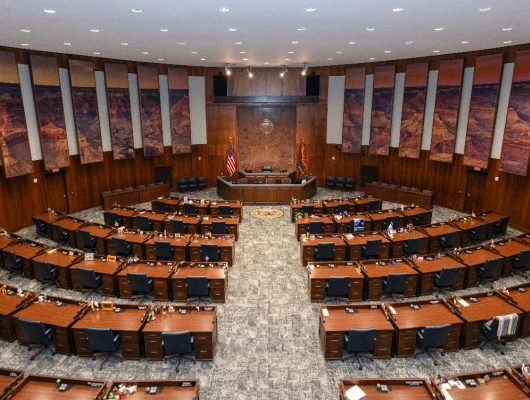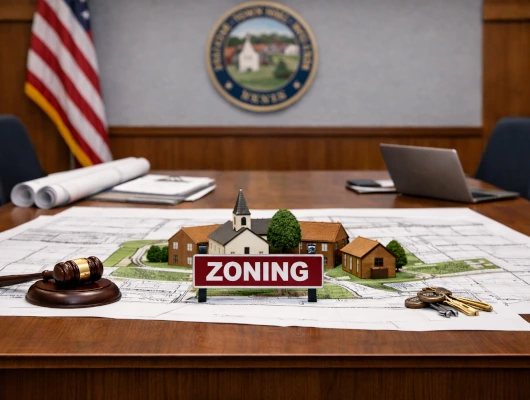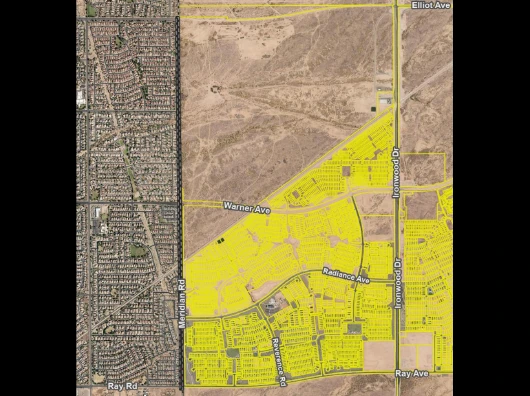Democrat Secretary of State Adrian Fontes’s testimony about voter records took a significant turn during an October 28 court hearing – specifically after his lunch break, according to a Maricopa County Superior Court order issued by Judge Scott A. Blaney on October 31, 2024. In the order, Judge Blaney found Fontes “initially denying that he even possessed a list of initial 98,000 voters, and then changing his testimony after returning from lunch,” adding that his testimony “suggested that he lacked detailed familiarity” with his office’s efforts regarding the affected voters.

“Secretary Fontes maintained that MVD never provided him with a list that contains any personally identifiable information of the additional 118,000 Affected Voters. Secretary Fontes provided inconsistent testimony on this point, initially denying that he even possessed a list of initial 98,000 voters, and then changing his testimony after returning from lunch. His testimony suggested that he lacked detailed familiarity with the AZSOS’s efforts with regard to the issue and with regard to the records in the possession of the AZSOS related to the 218,000 individuals.”
CV 2024-027778
Finding of Fact #18-#19
The case centers on a 20-year voter registration system glitch that could affect voter eligibility in state and local elections. The issue involves Arizona residents who obtained driver’s licenses before October 1996 and registered to vote after 2004, when Arizona began requiring proof of citizenship for voter registration. Due to what Secretary Fontes and Recorder Richer jointly admitted was “a flaw in the interface between ADOT’s driver licensing issuance process, and the statewide voter registration database,” these voters were “automatically, but inaccurately, understood by the voter registration systems to have provided” documentary proof of citizenship (Finding #11). According to their joint admission cited in the court document, the issue initially affected 97,928 voters as of September 18, 2024. However, by October 3, a Secretary of State press release announced that number had grown to include “approximately 118,000” additional people after officials included “renewed and reinstated licenses in the MVD data pull of registrants that state officials now know may not have shown documentation sufficient to meet voter registration requirements” (Findings #13, #14). Secretary Fontes later testified that the total number of individuals affected by the system error had reached about 218,000 (Finding #16).
As Arizona’s chief election officer, the Secretary of State is responsible for maintaining the state’s voter registration database, ensuring election integrity, and overseeing the state’s election systems. The office works directly with county recorders and election officials to maintain accurate voter rolls and implement election procedures in accordance with state and federal laws.
The lawsuit, filed by Strong Communities Foundation of Arizona (EZAZ.org), challenged Fontes’s September 24 denial of their public records request for voter information. EZAZ.org sought records of voters who may have been incorrectly classified as having provided documentary proof of citizenship due to a glitch between the Motor Vehicles Division and Secretary of State’s systems.
During the hearing, Fontes made several claims that the court found troubling. He argued that releasing the records would “necessarily lead to violence – even sure death” of affected voters (Finding #38). He also testified that Arizona legislators would “undoubtedly provide the list to third party groups with the specific intent to encourage third party groups to engage in violent or harassing behavior” (Finding #39).
Judge Blaney found these claims “not credible and not supported by evidence.” The court noted that Fontes and his expert witness provided no evidence of specific threats, only “generalized political threats in the current environment” (Finding #10).
The court particularly rejected Fontes’s argument that he could withhold records if doing so “could save just one life,” stating this would create “an impermissibly broad, arbitrary standard where the best interest of the state exception swallows the entirety of the Arizona Public Records law” (Conclusion #9).
Judge Blaney ordered the records to be released by noon on November 4, with strict limitations on their distribution before November 6, one day after the 2024 General Election. EZAZ.org may only share the information with county recorders, the Senate President, the Speaker of the House, and members of the House and Senate Elections Committees. Recipients must provide written confirmation they won’t distribute the information further. Judge Blaney did not explain in the order why this specific date was chosen for the restrictions to end.
Despite his objections throughout the case, Fontes “avowed to the Court during his testimony that he will comply with whatever ruling this Court issues on the present dispute.”
The court awarded attorney’s fees and costs to EZAZ.org, with final judgment to be determined after November 29 following submission of fees and any objections from the defendants.






